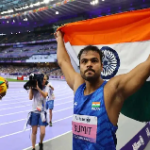What are the pro-Pakistan separatist organisation Hurriyat Conference and banned fundamentalist outfit Jamaat-e-Islami doing in Jammu-Kashmir Assembly Election 2024? Earlier, Hurriyat boycotted elections in the state. Though after the death of Syed Ali Shah Geelani and the clampdown following the abrogation of Article 370, the outfit has lost much of its clout, it is still relevant and cannot be ignored. Though the separatist outfit is still clinging to its old demand of plebiscite and secession from India, it has changed its stand.
Hurriyat Conference: Shift In Ideology
A shift in ideology is clear with many of its leaders joining one of the mainstream political parties and contesting the election. Though the party can still claim to not participate in the polls as it has not declared its intention of fighting the election officially, many of its important leaders have decided to test the waters.
Hurriyat Conference Leader To Contest Election
Indicating a paradigm shift, prominent Hurriyat Conference leader Syed Salim Gillani quit the party, joined the People’s Democratic Party and is gearing up to contest election. Indicating his willingness to fall in the line of New Delhi, Gillani said violence is not the solution, and no one should be killed. He also said that he chose the PDP because it advocates for the reconciliation of the Jammu and Kashmir issue.
Hurriyat Conference Leader Bats For Reconciliation
The PDP has never advocated for a plebiscite by the UN Resolution, unlike the Hurriyat. Breaking from the past, the PDP leader also admitted the solution to the Kashmir issue lies on the table, not through guns, stones, or sticks. He further added that the issue can be resolved through dialogue and reconciliation.
Banned Jamaat-e-Islami Wants To Contest Polls
Jamaat-e-Islami too has shifted its stand and expressed its willingness to join mainstream politics. It has said that it would like to fight elections if the ban is revoked. Changing its strategy, Jamaat has adopted the policy of fielding its members as independent candidates, some of them have also joined mainstream political parties.
The cooperation between the PDP and the Jamaat-e-Islami is symbiotic as it can help both organizations. While Jamaat will find a platform to field its candidates, the PDP will be able to expand its base riding on the wave of support from the Jamaat-e-Islami.
Impact Of Abrogation Of Article 370?
The shift of stand by the Hurriyat Conference and the Jamaat-e-Islami may benefit those who are opposed to them for their policies- the BJP. The saffron outfit claims that the change of stand by these anti-India outfits is the result of the abrogation of Article 370 and the abolition of the special status of Jammu-Kashmir.
Clampdown And Crackdown
It is also of the opinion that the clampdown following the abrogation of Article 370 and the subsequent crackdown has disrupted the terror network and damaged the ecosystem. It has also damaged the anti-India narratives and sent strong signals to Pakistan.
BJP Spokesperson for Jammu-Kashmir Sajid Yousuf has said that even those who once opposed voting are participating in the electoral process. He said further that democracy is getting stronger, and ideologies are changing.
How Will Hurriyat Impact Political Landscape?
Hurriyat Conference is a cadre-based organization with a strong presence in the Kashmir valley, particularly in North and South Kashmir. After the death of Syed Ahmed Shah Geelani, the organization is almost rudderless and most of its cadres are disappointed and disillusioned. Some of them want a way out and may like the idea of participating in the electoral process.
Pakistan’s Strategic Move?
However, some political analysts think that Jamaat and Hurriyat might have taken this stand under the guidance and advice of Pakistan. Islamabad might have planned to send some of the people holding allegiance to it to join the Indian state so that they could influence the decision and future course of Jammu-Kashmir. By doing so, Pakistan may try to infiltrate the Indian state and capture some of the key positions.
Tired of fomenting terrorism in Jammu-Kashmir without the desired results, Islamabad may have changed its strategy. But if it is the care really, Pakistan may find itself trapped and absorbed in the Indian state and democratic system, which is quite resilient despite several shortcomings.



